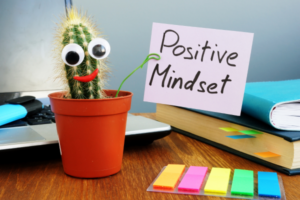Introduction
Life is filled with challenges, both big and small. Our ability to navigate these obstacles with grace and fortitude is often a testament to our emotional resilience. Emotional resilience refers to our capacity to bounce back from stressors, adapting and learning from hardships rather than being overcome by them. One powerful tool that can enhance emotional resilience is the practice of mindfulness. This article will explore how mindfulness can aid in building inner strength, enabling us to meet life’s challenges head-on with a balanced and steady heart.
1. Understanding Mindfulness
Mindfulness is a state of active, open attention to the present. It’s about observing your thoughts, feelings, and experiences without judgment. By being fully present in each moment, we can engage with life more directly and honestly.
Practicing mindfulness allows us to notice and accept our feelings as they arise, rather than ignoring or suppressing them. This acceptance is an important part of building emotional resilience, as it helps us to understand and manage our emotional responses to stressors.
Moreover, mindfulness encourages us to focus on the present rather than dwelling on the past or worrying about the future. This focus on the present can reduce anxiety and help us to navigate challenges in a more balanced and grounded way.
2. Embracing the Full Spectrum of Emotions
Often, we label our emotions as either ‘good’ or ‘bad.’ However, all emotions, even those we perceive as negative, are part of the human experience. Through mindfulness, we learn to embrace the full spectrum of our emotions without judgment.
When faced with difficult feelings, rather than turning away, we turn towards these emotions with curiosity and kindness. By acknowledging and accepting our feelings, we allow them to be, and in doing so, we often find that they lose their hold over us.
Embracing the full spectrum of our emotions can help us to develop emotional resilience, as it allows us to experience and navigate our feelings in a healthier and more balanced way.
3. Cultivating Self-Compassion
Self-compassion involves treating ourselves with the same kindness and understanding that we would offer a friend. Mindfulness is a crucial part of self-compassion, as it allows us to notice when we’re struggling and to respond with kindness rather than criticism.
When we make a mistake or face a setback, it’s easy to fall into a pattern of self-criticism. However, this harsh self-judgment can undermine our emotional resilience. By practicing self-compassion, we learn to respond to our own mistakes and struggles with understanding and kindness.
Cultivating self-compassion through mindfulness can help us to build emotional resilience, as it encourages us to meet our difficulties with understanding and care rather than criticism and judgment.
4. Building Mindful Relationships
Our relationships with others can often be a source of stress and challenge. Mindfulness can help us to navigate these relationships with more grace and understanding, thereby enhancing our emotional resilience.
Mindful communication involves fully listening to the other person and speaking honestly and kindly. This can reduce misunderstandings and foster deeper connections. By being mindful in our interactions, we can respond to the challenges of relationships in a more balanced and thoughtful way.
Furthermore, mindfulness can help us to cultivate empathy and understanding towards others. This can enable us to navigate conflicts and disagreements in a more compassionate and resilient way.
5. Mindful Stress Management
Stress is a part of life, but how we respond to stress can greatly impact our well-being and resilience. Mindfulness can be a powerful tool for managing stress in a healthier way.
When we’re stressed, we often react impulsively or fall into negative thinking patterns. Mindfulness helps us to step back and observe our stressors without immediately reacting to them. This space can allow us to respond to stress in a more balanced and thoughtful way.
Moreover, mindfulness can help us to notice the signs of stress in our body and mind, enabling us to take care of ourselves before stress becomes overwhelming. This can enhance our resilience and overall well-being.
6. Mindfulness and Acceptance
Life is full of ups and downs. Part of building emotional resilience is learning to accept that challenges and difficulties are a part of life. Mindfulness can aid in this acceptance.
Through mindfulness, we learn to notice and accept our present-moment experience, whether it’s pleasant or unpleasant. This acceptance can help us to navigate life’s challenges with more grace and equanimity.
Acceptance doesn’t mean resignation or giving up. Instead, it means acknowledging our reality and working with it rather than against it. This acceptance can foster emotional resilience, enabling us to meet life’s ups and downs with a balanced and steady heart.
7. Nurturing Inner Strength Through Mindfulness
Building emotional resilience is like strengthening a muscle; it requires consistent practice and patience. Mindfulness is a powerful tool for nurturing our inner strength.
Through mindfulness, we cultivate qualities like patience, perseverance, and courage, which can enhance our resilience. By being fully present in each moment, we learn to navigate life’s challenges with more balance and steadiness.
Moreover, mindfulness encourages us to take care of our mental and emotional health. This self-care can further enhance our resilience, allowing us to meet life’s challenges with a greater sense of strength and well-being.
Conclusion
Mindfulness is more than a practice; it’s a way of life. By cultivating mindfulness, we can enhance our emotional resilience, building inner strength to navigate life’s ups and downs with grace and equanimity. As we continue to practice mindfulness in our daily lives, we find that we’re not only better equipped to handle challenges but also more able to fully engage with and appreciate each moment, no matter what it brings. By embracing mindfulness, we allow ourselves the space to grow, learn, and thrive, even in the face of adversity.



